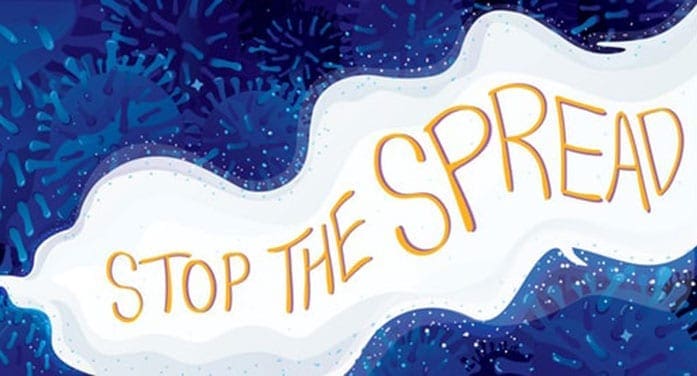How do you respond to a deluge of COVID fake news on social media?
If you ask Timothy Caulfield, he would say fight back with a tsunami of irrefutable science.
That’s just what he and other notable influencers are doing with a new social media campaign called #ScienceUpFirst. So far, it seems to be working, with more than 42 million impressions since launching in late January.
“Misinformation is a dire, imminent threat to the lives of all Canadians and is proven to be one of the factors fuelling COVID-19 infections, and dissuading Canadians from getting vaccinated,” said Caulfield, Canada Research Chair in Health Law and Policy and research director of the U of A’s Health Law Institute.
“We thought it was a good idea to put together a national initiative mobilizing people to spread credible information on social media.”
To ensure the information is credible, a group of experts – independent scientists, health-care providers and science communicators – will carefully vet content to make sure it’s grounded in science and from a trusted source.
Caulfield came up with the idea in conversation with prominent psychiatrist and Canadian Senator Stan Kutcher of Nova Scotia. They set out to recruit science experts such as Tara Moriarty, an infectious disease specialist with the CanCOVID Network; Marianne Mader, executive director of the Canadian Association of Science Centres (CASC); and neuroscientist and science communicator Samantha Yammine (”Science Sam”).
“We’re also doing it bilingually and want to reach out to and co-create with Indigenous communities, working with them to ensure the messaging resonates with their communities,” said Caulfield.
The project is a collaboration between the CASC, COVID-19 Resources Canada and the Health Law Institute. It’s also an extension of research Caulfield has done on COVID-19 misinformation since the coronavirus first appeared, when a shadow “infodemic” spread bogus health advice, such as drinking bleach, ingesting cocaine and alcohol, and using cow urine as a disinfectant.
His team has examined how misinformation proliferates through mainstream and social media, and through search engines such as Google, trying to figure out just what kind of messages gain traction “for better or worse.”
Last May, Caulfield worked with MediaSmarts to launch the Check then Share campaign, reminding Canadians to fact-check information about the virus before sharing it on social media.
While the current campaign is focused on the COVID-19 vaccination rollout – aiming to reassure the Canadian population that it’s safe and effective – Caulfield hopes it lives on after the pandemic to counter all manner of junk science on a global scale.
“We are definitely trying to make it broader,” he said. “We want this to be a movement. That’s why we’re emphasizing the #ScienceUpFirst hashtag – we’re pushing an ethos as much as content.”
To find out more or to get involved, follow #ScienceUpFirst on Twitter, Instagram and Facebook, and use the hashtag to repost evidence-based information. To sign up for a weekly newsletter, visit the website.
| By Geoff McMaster
Geoff McMaster is a reporter with the University of Alberta’s Folio online magazine. The University of Alberta is a Troy Media Editorial Content Provider Partner.
The opinions expressed by our columnists and contributors are theirs alone and do not inherently or expressly reflect the views of our publication.
© Troy Media
Troy Media is an editorial content provider to media outlets and its own hosted community news outlets across Canada.


